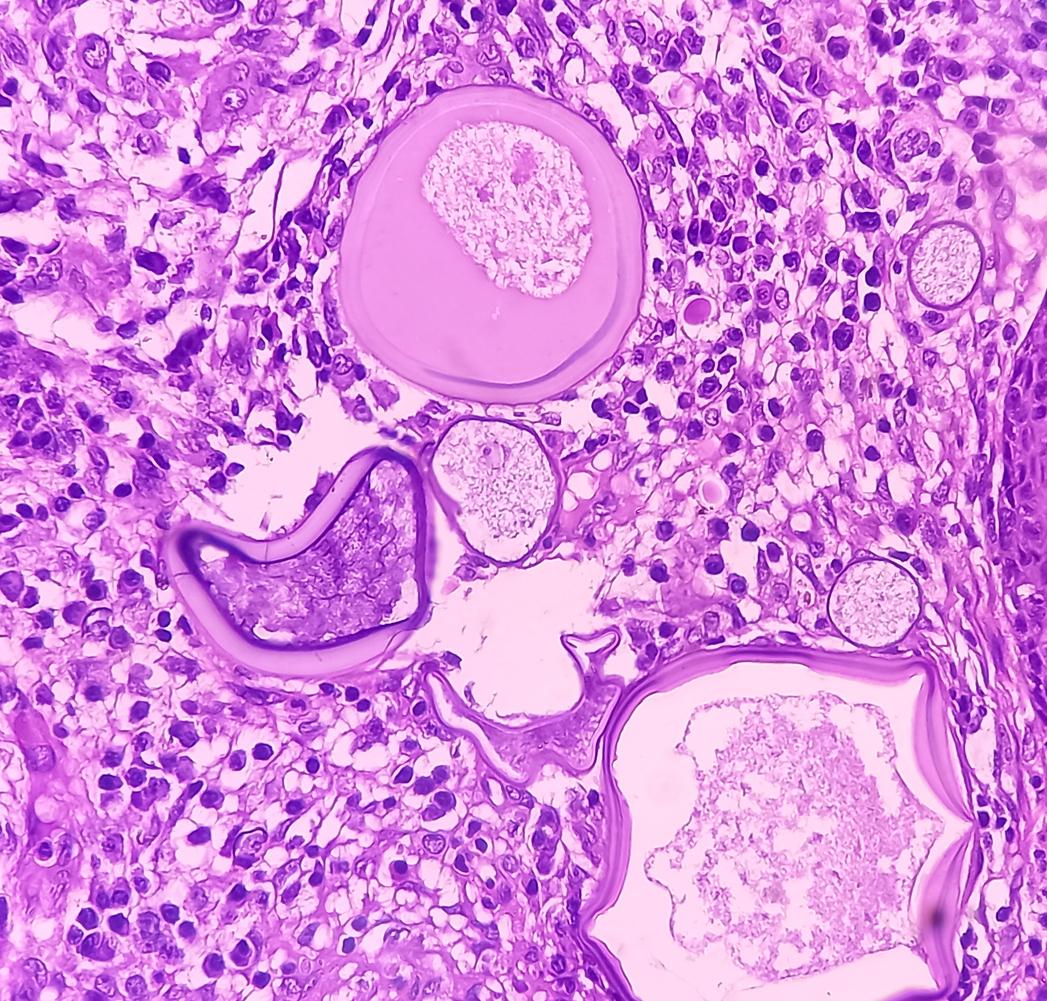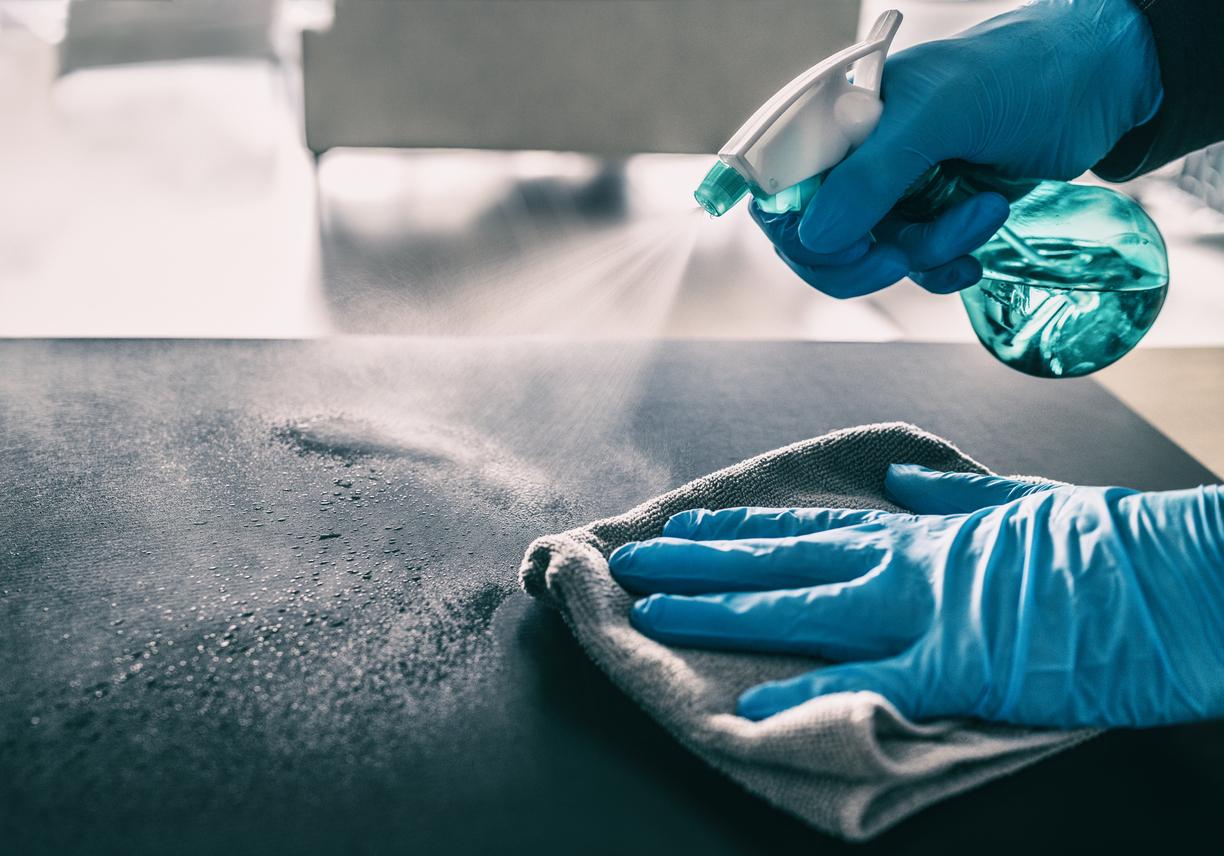According to a new Swedish study, the bacterium Streptococcus pneumoniae, which causes pneumonia, would use the hydrogen peroxide present in our body to trigger the disease.

Hydrogen peroxide is a chemical compound with the formula H2O2. Its aqueous solution, the famous hydrogen peroxide, is regularly used to whiten teeth, lighten hair or even clean surfaces and disinfect wounds. But this compound is not only available in stores: it exists naturally in living beings, therefore in our organism, as a by-product of cellular respiration. And according to a Swedish study published this Monday, August 2 in the review NatureCommunicationssome bacteria would use it to weaken our immune system, causing pneumonia.
Paving the way for other microbes to attack
During their study, Saskia Erttmann and Nelson Gekara from Umeå University and Stockholm University (Sweden) focused on the bacterium Streptococcus pneumoniae. Better known as pneumococcus, it causes pneumonia but can also lead to serious meningitis or sepsis. It can also pave the way for other microbes to attack, making it one of the deadliest bacteria in the world. However, many people carry this bacteria in their upper respiratory tract without ever triggering any illness.
Working on rodents, the researchers found that by releasing large amounts of hydrogen peroxide, pneumococcus and many other microbes were able to reside in the body without causing an inflammatory reaction that would dislodge them by targeting inflammasones. The latter are protein complexes which, by recognizing foreign molecules found, for example, in microbes or damaged cells, trigger reactions to kill the microbes and eliminate diseased cells.
“Bacteria fight fire with fire”
By manipulating the bacteria to produce less hydrogen peroxide in the animals, the researchers observed that they were unable to deactivate the inflammazones. Thus, the mice had a faster inflammatory reaction, which allowed them to eliminate bacteria from their lungs more efficiently.
They also discovered that by inoculating them with catalase, a special enzyme that breaks down oxygen peroxide, it would be possible to increase inflammation and its symptoms, thus making it possible to eliminate pneumococci more quickly from the lungs.
“Using hydrogen peroxide to overcome the immune system, you could say that bacteria are fighting fire with fire. The body itself also produces hydrogen peroxide as a defense against bacteria. Therefore, it was surprising that many types of bacteria actually use the same substance to overcome the body’s defenses,” notes Nelson Gekara, who conducted the study.
Inflammation helps defend the immune system from microbes
“Inflammation often has a negative connotation. However, for the body, inflammation is an important process in defending the immune system against attacking microbes. Most microbes produce hydrogen peroxide to varying degrees. Our studies demonstrate that hydrogen peroxide is an inhibitor of an important component of the inflammatory machinery, suggesting that the mechanism we have discovered is a common strategy employed by many microbes to thrive in us.” him Saskia Erttmann, lead author of the study.
Throughout the world, pneumonia mainly affects children, who can die from it, especially in South Asia and sub-Saharan Africa. In 2013, 15% of under-five deaths were caused by this respiratory disease, making it the leading infectious cause of child mortality worldwide.
One fruit a day
Also, according to the World Coalition against Childhood Pneumonia, we should expand vaccination against the four infectious agents most often responsible for the disease (besides Streptococcus pneumoniae, the bacteria Haemophilus influenzae type b (Hib), respiratory syncytial virus and Pneumocystis jirovec, may also be involved), using techniques to treat low oxygen levels and facilitating access to antibiotic treatment in poor countries. It would also be appropriate to fight against environmental factors such as air pollution or passive smoking and to ensure good nutrition for children in order to strengthen their natural defences.
In conclusion of their study, the researchers also point out that vitamin C, present in fruits, is very effective in neutralizing hydrogen peroxide and therefore strengthening antibacterial immunity. The old adage “an apple a day keeps the doctor away” takes on its full meaning here.

.

















